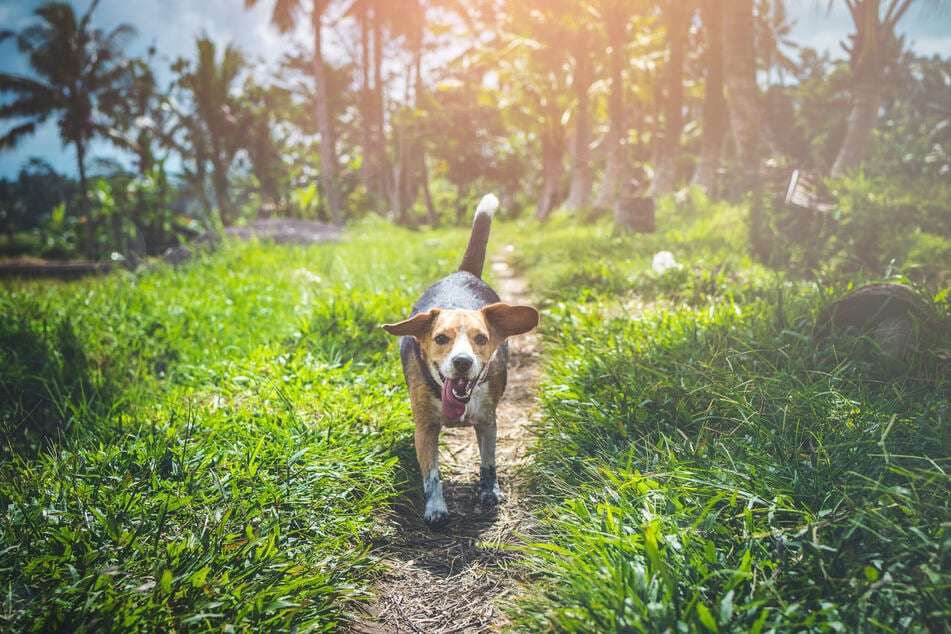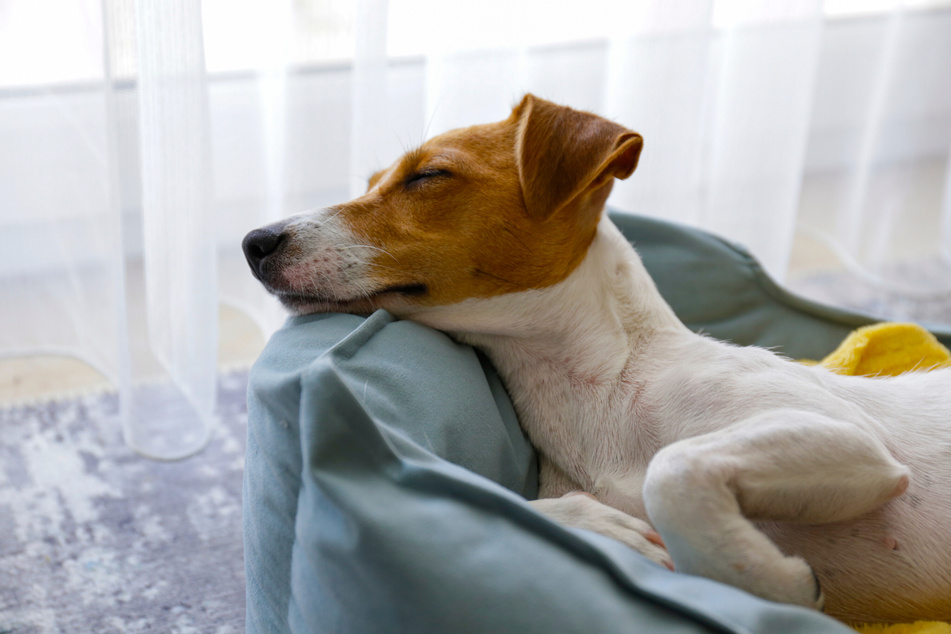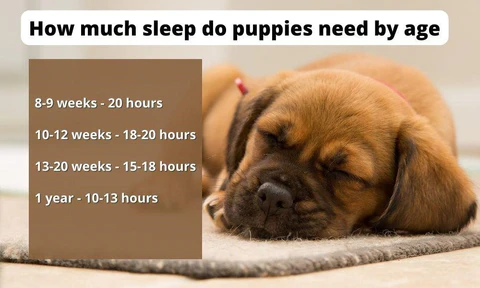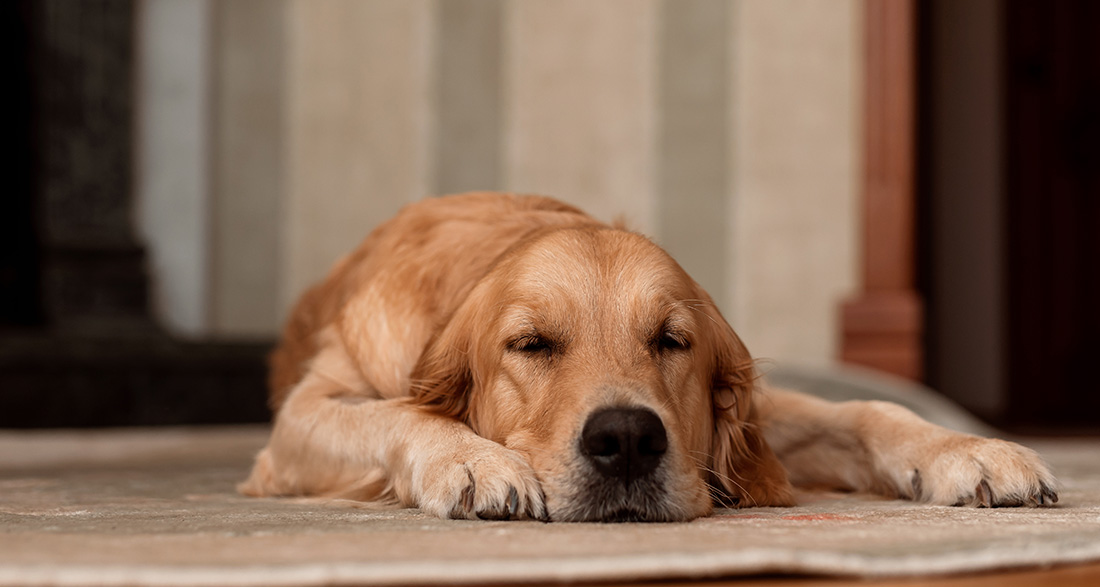If your dog is sleeping a lot and seems somewhat sluggish, there could be several reasons. Heat, exertion, stress, and more can affect the sleep of dogs.
Some dogs never seem to rest, while others could hardly be more relaxed, dozing throughout the day.
But what is considered healthy, and when should dog owners be concerned about their four-legged friend? There are certainly many reasons for extended sleep.
Sometimes the reasons are harmless and resolve on their own. However, prolonged sleep, coupled with other symptoms, can also be a warning sign.
Your dog sleeps a lot, and you’re looking for an explanation? iHugDogs reveals when to take a closer look and what measures to take.
Quick Facts:
- Various factors, such as heat, stress, boredom, and insufficient deep sleep, can contribute to dogs sleeping a lot.
- Excessive sleep in dogs is often harmless and temporary.
- It can, however, be a symptom of underlying health issues.
- When in doubt, always consult a veterinarian.
9 Causes of Dog Fatigue
Fatigue in dogs can have various causes. Some can often be treated at home, while others require immediate veterinary attention. The following nine reasons can be behind tired dog eyes and excessive sleep.
Exercise
Exercise and fresh air not only make us humans tired; our four-legged friends also need enough rest after extensive walks, jogging rounds, or hikes.
Some breeds find it easier to regenerate than others. Particularly athletic dog breeds recover quickly from high physical exertion.
It is also important to approach athletic activities like jogging with the dog slowly. Even agile dogs need time to acclimate to the strain.
Stress
Stress in any form, whether mental or physical, affects the energy balance of dogs. Significant events, stressful encounters with other dogs, visitors at home, and physical exertion can be challenging for dogs.
How much a situation affects the stress level of the dog depends on its socialization.
Heat
Summer heat can be extremely challenging for many four-legged companions. Dogs do not sweat like humans; instead, they pant to lower their body temperature.
Flat-faced breeds, in particular, struggle with the heat due to breeding issues related to breathing and panting. However, high temperatures can affect other dogs as well, making them sluggish and potentially causing them to sleep more in summer.

Health Issues in Dogs
If a dog is unusually tired and suddenly loses interest in everything, it can also be a sign of health problems. Especially if the dog not only sleeps a lot but also loses its appetite, there may be a health-related cause. This can include:
- Fever
- Parasites
- Injury
- Infection
- Thyroid issues
- Diabetes
- Anemia
- Kidney, liver, or heart diseases
- Poisoning
Generally, health issues are accompanied by other symptoms like diarrhea, vomiting, pale gums, or reduced appetite.
If observed in a pet, a visit to the vet is strongly recommended!
Adjustment of Dog Medications
Medications can have side effects, even in dogs. If the dose has recently changed or a new medication has been administered, the dog may appear tired.
In such cases, scheduling a follow-up appointment with the vet is advisable. This helps determine whether the dog is sleeping a lot due to the medication adjustment.
Boredom and Sadness in Dogs
Boredom and sadness often manifest as lethargy and fatigue. Dogs should be mentally and physically stimulated, which can include promoting their logical thinking or engaging them in search and puzzle games.
Note
While challenging a dog is excellent, breaks should not be overlooked. Excessive stress from constant activity can lead to fatigue.

Diet Impacting Dog’s Sleepiness
Nutrition directly affects a dog’s energy balance. A nutrient-poor diet can make dogs feel tired, lacking energy, and prone to sleeping more.
Compensating for Missed REM Phase
The REM (Rapid Eye Movement) sleep phase is reached approximately 1.5 hours after falling asleep. It is characterized by rapid eye movements and twitches.
During this phase, the brain is most active, processing emotions and experiences, and promoting cognitive development.
If dogs do not regularly reach the REM sleep phase, they may be sleepier than usual. They compensate for the missed sleep with long periods of dozing.

Sleep Disorders in Dogs
Dogs can also experience sleep disorders, including:
- Insomnia
- Sleep apnea
- Narcolepsy
- REM sleep behavior disorder
Sleep disorders not only lead to fatigue in dogs but can also cause behavioral changes. In such cases, consulting a veterinarian is recommended.
Why Do Dogs Need So Much Sleep?
The amount of sleep a dog needs depends on its age, size, and breed. Not every dog requires the same amount of sleep.
For medium-sized dogs aged between one and seven years, an estimate is 14 to 18 hours of sleep. Larger or smaller dogs, as well as younger and older dogs, may require an additional two to four hours, totaling 18 to 20 hours of sleep.

Conclusion: Observe Your Dog’s Sleep Patterns and React if Necessary
Your dog sleeps a lot and isn’t eating? Or your beloved pet doesn’t want to go out anymore and sleeps excessively? If you notice such sudden behavioral changes in your four-legged friend, it’s essential to pay closer attention.
A temporary change in behavior usually does not have a severe cause, as even pets can have off days. However, if fatigue persists in the long term or occurs repeatedly, it’s advisable to observe your dog more closely and, if necessary, take them to the vet.
If you notice that your dog sleeps a lot, pay attention to additional symptoms. They could be an indication that there might be more to the situation, and a vet visit may be warranted.


